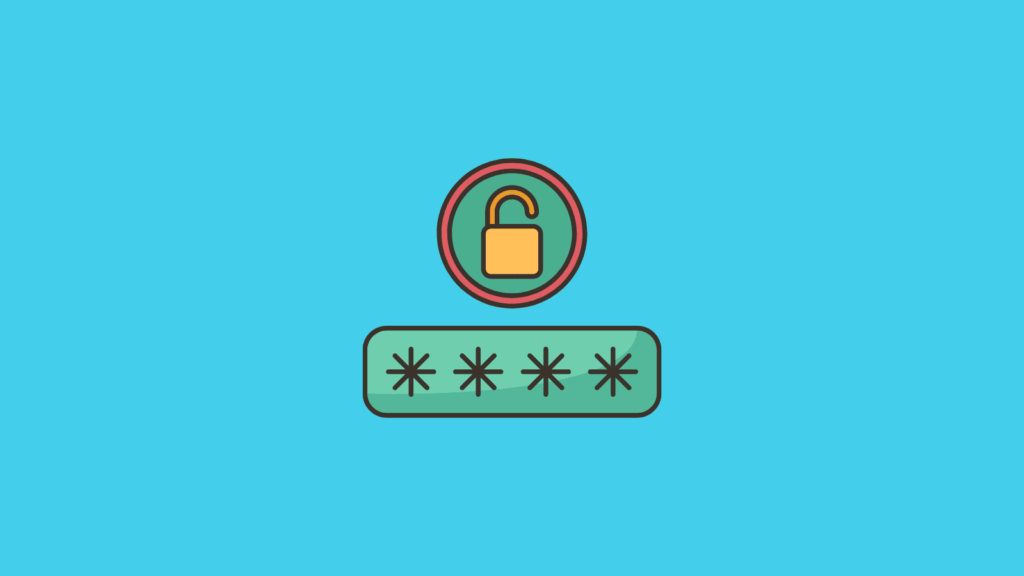Why Is It a Bad Idea to Store Your Passwords on Excel Spreadsheet?
Protecting accounts and data needs better password storage than Excel sheets. Following the abovementioned suggestions can decrease the chances of your accounts getting hacked.

Some of you wouldn’t believe it, but many people still rely on old-fashioned ways to store their passwords. They’re out there, memorizing or putting passwords in Word or Excel sheets. Some are even cribbling passwords on scraps of paper. You’d think by now, with all the advanced password managers available, we’d have moved on.
This article will explain why relying on Excel or notepad for password storage is a security risk. And we have some top-notch alternatives to lock those passwords tight.
Why is it not safe to keep passwords in an Excel sheet?

Saving passwords in an Excel sheet is about as risky as walking a tightrope blindfolded. We’re talking about potential theft, hacking, and other unsavory outcomes. Here are some dangers of using this outdated method for password storage.
Lack of encryption and security
Excel doesn’t keep your login information safe from the sneaky hands of cybercriminals. It lacks the essential feature of encryption that can shield sensitive data from prying eyes. Transitioning to an open source password manager provides enhanced security through encryption and better management of your sensitive login credentials.
If you don’t encrypt your passwords, you invite shady characters to access your private information. And let’s be honest; nobody wants their secrets out in the open for anyone to see.
We must put a premium on protecting our digital assets, like our login credentials. Storing passwords in a secure place protects your identity and personal information.
Difficulty in managing and updating passwords
Here’s why relying on an Excel spreadsheet to store numerous passwords can become a hassle.
- Poor organization: As your password collection expands, finding a specific password may need sifting through hundreds of rows. It is a laborious and time-consuming task.
- Difficulty sharing. Password-protecting an Excel spreadsheet makes it difficult and time-consuming to share. You may have to erase or hide passwords manually to prevent unwanted access.
- Lack of automation. Excel lacks the automated features of password managers. For instance, it can’t generate secure passwords or schedule prompts to update passwords.
Increased risk of human error
Storing passwords in Excel spreadsheets is prone to human error. Typing each password into a spreadsheet leaves the potential for typos and blunders. Even the most minor mistake can render a password useless. And, in the worst case, allow unwanted access to private data.
What are the best practices for secure password storage?

Keeping our private information secure demands a thoughtful approach to managing passwords. Here are some recommendations and methods for secure password storage.
Invest in a password manager.
In today’s world, where we have multiple accounts, remembering all the passwords can be a nightmare.
Password managers offer strong encryption to protect your login credentials. And they often come with a password generator. This feature creates unique and complex passwords for each account, enhancing security.
Moreover, password managers let you access all your credentials with one password rather than relying on memory or written notes.
Encrypt stored passwords.
Almost 40% of people polled in 2022 said they encrypted between 21% and 40% of their private cloud data.
Whether you’re saving passwords in a file or database, ensuring they’re encrypted is crucial. But using just any encryption algorithm is not enough – you need a strong one.
When it comes to encryption, the gold standard is end-to-end encryption (E2EE). E2EE prevents third-party interference, granting data access only to the sender and recipient.
Put two-factor authentication in place.
Two-factor authentication (2FA) is a simple but effective way to provide an additional layer of protection. To use 2FA, you must provide a second form of verification apart from entering your password. It can be a code sent to your phone or a biometric scan.
This measure makes it problematic for criminals to access your accounts, even if they already have passwords.
Use encrypted cloud storage services.
If done right, storing passwords in cloud storage is a secure option. Cloud storage providers offer various precautions to protect your data.
Passwords stored in the cloud can be secure for the following reasons:
- Encryption: The majority of cloud storage providers encrypt your data. Encryption safeguards your passwords. Only authorized individuals can access the decryption key.
- Multi-factor authentication (MFA): MFA is becoming common among cloud storage providers. It means that even if someone steals your password, they still need a second factor, like an SMS code, to log in.
- Controlled access: Controlling who can access your data is a crucial feature of cloud storage services. You can provide access to specific individuals or groups and revoke it anytime.
Note that cloud storage is not an impenetrable safe haven for passwords. Use strong, unique passwords, change them often, and enable two-factor authentication wherever possible.
Final Words
Protecting accounts and data needs better password storage than Excel sheets. Following the abovementioned suggestions can decrease the chances of your accounts getting hacked. Additionally, make sure to stay up-to-date with the latest hacking techniques as well as security measures to keep yourself extra secure online.
FAQ
What Is Password Security?
Password security refers to the practices and measures taken to create, manage, and protect passwords effectively to prevent unauthorized access to personal and sensitive information.
Why is Password Security Important?
Password security is crucial for protecting personal and organizational data from unauthorized access, cyber attacks, identity theft, and other digital security threats.
What Makes a Strong Password?
A strong password typically includes a combination of upper and lower case letters, numbers, and special characters. It should be long (at least 12 characters) and not easily guessable or related to personal information.
How Often Should Passwords Be Changed?
It’s recommended to change passwords every three to six months, or immediately if there’s suspicion of a security breach or unauthorized access to an account.
What is Two-Factor Authentication (2FA)?
Two-factor authentication is an additional layer of security where users must provide two different authentication factors to verify themselves. This often includes something you know (a password) and something you have (a mobile device).
Should the Same Password Be Used for Multiple Accounts?
Using the same password for multiple accounts is not recommended. If one account is compromised, it can lead to a domino effect, endangering all accounts with the same password.
What Are Password Managers and How Do They Enhance Security?
Password managers are tools that create, store, and manage passwords for multiple accounts. They enhance security by generating strong, unique passwords for each account and securely encrypting them.
How Can You Protect Passwords from Phishing Attacks?
To protect against phishing, never share passwords over email or phone, verify the legitimacy of websites before entering credentials, and be cautious of emails requesting urgent action or containing suspicious links.
What is the Risk of Using Public Wi-Fi for Password-Protected Accounts?
Using public Wi-Fi for accessing password-protected accounts is risky as these networks are often unsecured, making it easier for hackers to intercept data and gain access to your accounts.
Can Biometric Authentication Replace Passwords?
Biometric authentication, like fingerprint or facial recognition, is becoming more popular but usually complements rather than completely replaces passwords, adding an extra layer of security.
What is a Brute Force Attack and How Does it Affect Password Security?
A brute force attack is a method used by hackers to crack passwords by systematically trying every possible combination of letters, numbers, and symbols. Strong, complex passwords can significantly reduce the risk of such attacks.
How Do Password Complexity Requirements Enhance Security?
Password complexity requirements enhance security by making passwords harder to guess or crack. These requirements often include a mix of uppercase and lowercase letters, numbers, and special characters.
What Are the Dangers of Writing Down Passwords?
Writing down passwords can pose a security risk if the physical note is lost, stolen, or seen by unauthorized individuals. It’s safer to use a digital password manager with encryption.
How Can Users Recognize and Avoid Password Spoofing?
Password spoofing often involves fake login screens that mimic legitimate websites. Users can avoid it by checking the URL carefully, looking for HTTPS, and being wary of unexpected login prompts.
What Role Does Encryption Play in Password Security?
Encryption scrambles passwords into a code, making it difficult for unauthorized users to decipher them. It’s essential for securing data transmission and storage.
How Effective Are Security Questions in Protecting Accounts?
Security questions can be effective if the answers are not easily guessable or publicly known. However, they are less secure than other methods like 2FA, as answers might be obtained from social media or other sources.
Can Social Engineering Impact Password Security?
Social engineering can significantly impact password security as it involves manipulating individuals into revealing their passwords. Awareness and caution in sharing personal information are key to prevention.
Why is it Important to Regularly Update Security Software?
Regularly updating security software, including antivirus and anti-malware programs, is important as it ensures protection against the latest cyber threats and vulnerabilities, including those targeting passwords.
What is the Risk of Using Default or Manufacturer-Provided Passwords?
Using default or manufacturer-provided passwords poses a high security risk as these are often well-known and easily exploited by hackers. Always change default passwords to unique, strong ones.
How Can Organizations Train Employees in Password Security?
Organizations can train employees in password security through regular cybersecurity awareness programs, highlighting the importance of strong passwords, the risks of password sharing, and the use of 2FA and password managers.
What is a Password Attack and How Can It Be Prevented?
A password attack is any attempt to gain unauthorized access to a system by cracking a user’s password. Prevention methods include using strong, complex passwords, enabling two-factor authentication, and regularly updating passwords.
How Does Regularly Changing Passwords Improve Security?
Regularly changing passwords helps mitigate the risk of exposure from data breaches, as older passwords may become compromised over time. It’s a proactive step in maintaining account security.
What Are Common Mistakes People Make with Passwords?
Common mistakes include using easily guessable passwords (like “password” or “123456”), using personal information (like birthdays), reusing passwords across multiple sites, and sharing passwords with others.
How Can Users Ensure Their Passwords Are Unpredictable?
To ensure passwords are unpredictable, users should use a random combination of letters, numbers, and symbols. Avoiding common words, phrases, or patterns also helps make passwords harder to guess.
What is the Significance of Having Different Passwords for Different Accounts?
Having different passwords for different accounts is significant because it prevents a single compromised password from granting access to all of a user’s accounts, thereby limiting the potential damage.
How Does a Password Strength Meter Help in Creating Secure Passwords?
A password strength meter helps users by providing visual feedback on the security level of their password, encouraging them to create stronger, more secure passwords.
What Are the Best Ways to Store Passwords Securely?
The best ways to store passwords securely include using a reputable password manager, which encrypts and stores passwords, or keeping them in a secure, encrypted digital note if a manager is not available.
How Can Users Safeguard Their Password Recovery Options?
Users can safeguard their password recovery options by using secure, hard-to-guess answers for security questions and ensuring their email accounts associated with password recovery are also well-protected.
What Should Users Do If They Suspect Their Password Has Been Compromised?
If users suspect their password has been compromised, they should immediately change the password for the affected account and any other accounts where the same password was used.
How Can Two-Factor Authentication (2FA) Enhance Password Security?
Two-factor authentication enhances password security by adding a second layer of protection. Even if a password is compromised, unauthorized users are unlikely to have access to the second authentication factor, thereby safeguarding the account.
Create more and better content
Check out the following resources and Grow!